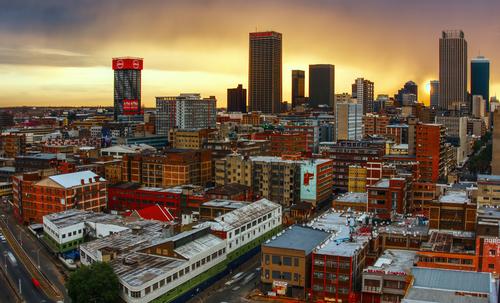News
Johannesburg Tackles Rising Heat with Innovative Urban Strategies

In a proactive response to the escalating heat island effect, the City of Johannesburg is implementing a range of strategies based on the latest research and collaborative efforts. Mzukisi Gwata, the principal specialist in the climate change adaptation unit for the Environment and Infrastructure Services Department (EISD), highlights the growing concern of increased temperatures in Johannesburg, especially their impact on vulnerable populations including the poor, the elderly, and those with pre-existing health conditions.
As per joburg.org.za, the city has assembled a team of experts, including contributions from the World Bank, VITO, PlanAct, the National Treasury of South Africa, the Cities Support Programme, and the Ekurhuleni Metropolitan Municipality. Their research in the Highveld region, encompassing Johannesburg and Ekurhuleni, shows a temperature rise of over 1.5°C since pre-industrial times, exacerbated by the urban heat island effect in densely populated areas.
Read more: Joburg Events: The Foodie’s Feast Market
Gwata explains, “A detailed modelling study assessed this, revealing that the excess night-time temperature in urban areas is higher by up to 6°C compared to nearby rural areas.” This study has led to several key recommendations, which the City is actively implementing. These include strategic urban greening, heat-health warnings, cooling strategies for low-cost dwellings, establishing community cool spaces, protecting public areas from extreme heat, promoting urban vegetable gardens, and enhancing worker protection and productivity.
The EISD, in collaboration with other municipal departments, is rapidly moving forward with these initiatives. Gwata emphasizes the City’s commitment to a comprehensive climate action plan to reduce emissions and increase resilience against climate change impacts on vulnerable communities. He notes the significant contributions of Johannesburg City Parks and Zoo (JCPZ) in planting trees for community cooling spaces, and the success of greening initiatives led by the Social Development Department, which have turned residents into urban farmers and entrepreneurs.
Acknowledging the journey ahead, Gwata underscores the importance of the study’s findings as the foundation for Johannesburg’s strategy. He encourages community involvement and inter-departmental collaboration towards achieving a safer, cooler city for all residents. “The City’s commitment to these recommendations reflects our forward-thinking approach to creating a resilient and sustainable urban environment, effectively mitigating the heat island effect,” he concludes.
Also read:
Joburg City Manager Floyd Brink Asserts Legitimacy of His Appointment

















